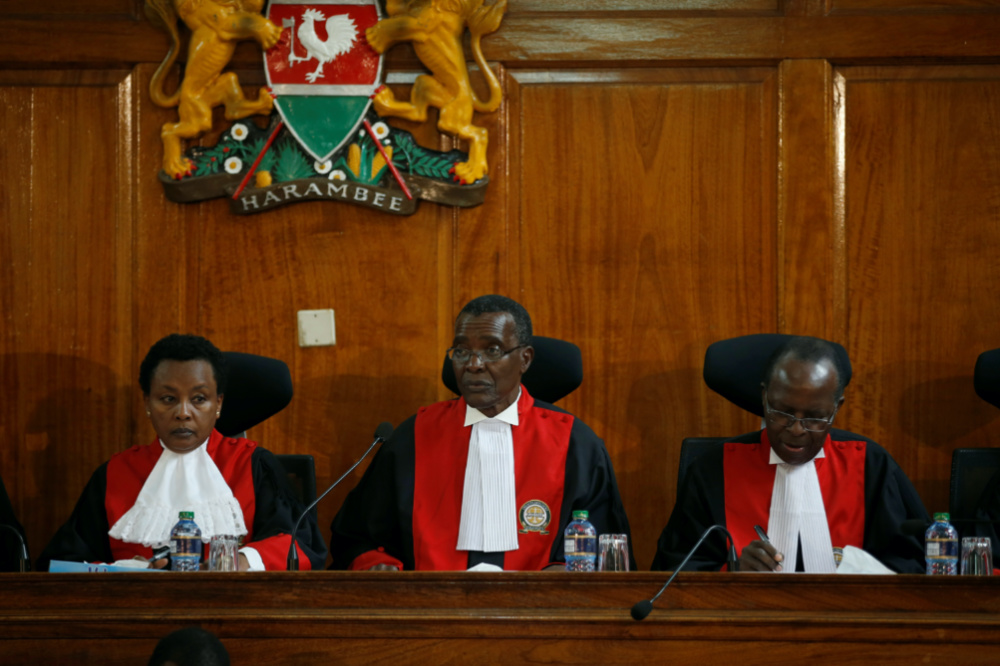Nairobi, Kenya
Thomson Reuters Foundation
Kenya’s parliament will launch a legal challenge to a bid by the country’s top judge to dissolve both legislative houses for not having enough women lawmakers, the speaker said on Tuesday, calling the move ill-advised, premature and unlawful.
Chief Justice David Maraga on Monday advised President Uhuru Kenyatta to dissolve the male-dominated parliament, saying lawmakers had failed to meet a 2010 constitutional provision which allows for one-third of seats to be occupied by women.
Women hold 22 per cent of seats in the country’s lower house of parliament, and 31 per cent in the upper house.
Under Kenyan law, once parliament is dissolved, elections must take place within 90 days.

Kenya’s Supreme Court judge chief justice David Maraga (centre) presides before delivering a ruling on 1st September, 2017. PICTURE: Reuters/Baz Ratner/File photo.
Justin Muturi, speaker of the National Assembly and chairman of the Parliamentary Service Commission, said Maraga’s advisory was unconstitutional, while organisations that pushed for the petition called it an unprecedented test of Kenyan law.
“The Commission regrets that the chief justice appears to be willing, even eager, to plunge the country into a constitutional crisis without exercising the wisdom and circumspection that is expected of the high office that he holds,” Muturi told a news conference.
“The Parliamentary Service Commission…has resolved to engage counsel to immediately proceed to the High Court…to challenge the unlawful action taken by the chief justice.”
Muturi said the Commission was convinced the issue of gender quotas could be resolved lawfully but did not give details.
Gender experts say women in politics can face a barrage of challenges, from physical and sexual violence to a lack of money to fund their campaigns. Some argue that quotas help create a more level playing field and ensure women are represented.
Kenya’s 2010 constitution states no more than two-thirds of any elected or appointed body can be of the same gender.
Since 2012, court rulings in Kenya have directed parliament to pass legislation to enforce the gender rule or risk being dissolved, but previous attempts have failed with female MPs accusing male lawmakers of deliberately blocking efforts.
In an advisory to Kenyatta, Maraga said parliament’s inability to pass legislation over the last 10 years was a clear testimony of lawmakers’ “lackadaisical attitude and conduct” with regards to the two-third gender rule.
Maraga said he was aware that dissolution of parliament would cause inconvenience and even economic hardship, particularly in the midst of the coronavirus pandemic.
Organisations who had petitioned the chief justice to dissolve parliament said the move was unprecedented, adding that the president was now compelled to act.
“The move shows that there are a few state officers who still uphold the law by the standards set under the constitution on the principles of good governance,” said Nelson Havi, President of the Law Society of Kenya, one of the petitioners.
“It is a vindication of the rule of law and we now wait to see what the President of Kenya will do.”





